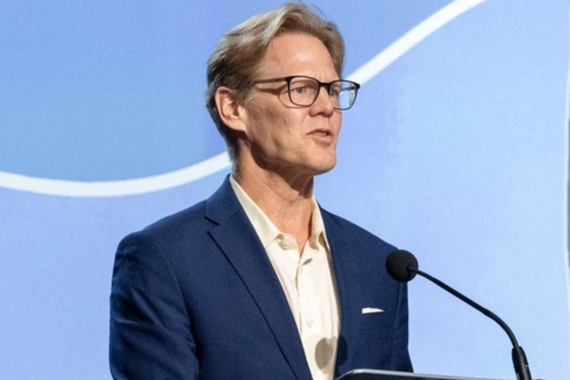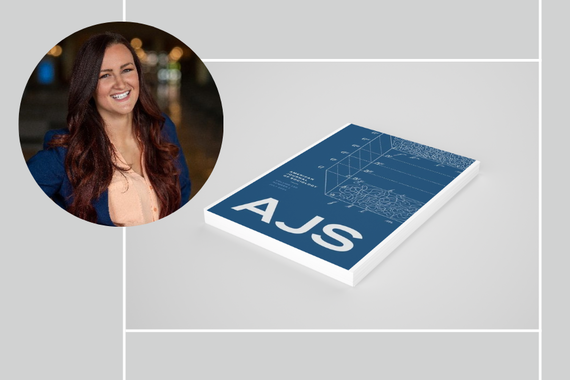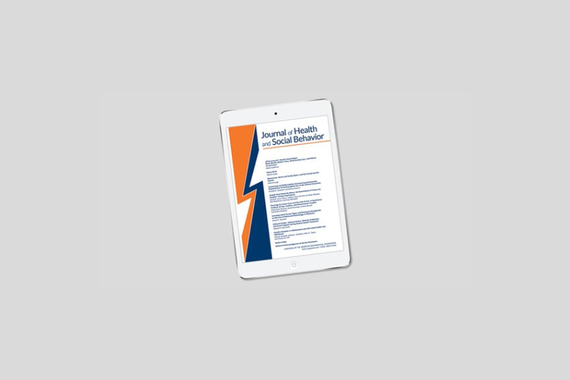Realities of Race and the Pandemic: Reckoning with Mortality
Interview highlights have been lightly edited for length and clarity.
I’m a demographer. Traditionally, demography is about births, deaths and migrations. But really what that means is it's about who’s in the population. I study death. And part of why that is so interesting to me is that it's something that is so intrinsic to what our lives are like, it matters so much how long we live, but it’s also something that you can count. It’s numerical. And that juxtaposition and interplay between something that is so essentially human, but also so countable and mathematical, are really interesting to me.
What are some milestones on your journey of discovery?
We found these big regional differences where basically the South looks way worse than everywhere else for a really long time. We were starting to write up this story, and then we started looking specifically by race, and we realized that what we had seen as a regional story was actually a story about race. It was about racial inequality that was not just in the South, but everywhere in the United States.
The thing we found that really floored us was that in the 1918 flu pandemic—which is off the charts for mortality—white mortality in that pandemic was less than what Black mortality had been every single year prior. Realizing how that was actually the typical experience for African-Americans, it was hard to even fathom.
We checked the data a million different ways, and every way we looked at it, we got the same result. Finally, we realized this is really true, and that really changed the way that I think about mortality.
Having also studied the 1918 flu pandemic, what similarities and differences have you observed between it and COVID-19?
Cities had to decide, what are we going to do in the face of this airborne disease that is killing on this unprecedented scale? So they adopted policies that are similar to a lot that we've done today. They did school closures, they quarantined people, they shut down lots of theaters and restaurants to keep people from being in close quarters together, among other kinds of reforms. Just like now, these strategies were actually incredibly controversial.
I have a project where some students and I were looking at newspaper clippings from the 1918 flu. It was amazing reading these denunciations of the autocracy of the health departments that were not allowing people to mingle freely. It feels so familiar to some of the debates that are happening today.
Some other things were different. A lot of my research is about racial inequality in mortality, and there the 1918 story is very different from the coronavirus story. This pandemic has been marked by really extreme racial inequality in who is getting sick and who's dying. And that has a lot to do with things like who is an essential worker in the United States.
The 1918 flu was different from that, prior to it in almost every year Blacks were at much higher risk than whites across the board. Then the pandemic was almost an exception to that where the Black and white death rates were surprisingly equal.
If there was one thing you want people to understand about your work, what would it be?
The fun of my work is using these very precise, quantitative mathematical models to understand really deep things about how inequality works, about what our lives are like.
Can you describe the relationship between your research and your teaching?
I start off my statistics class with a mini lecture about how everything you know about “math people” is a lie. I want to start with an invitation to embrace the fact that anybody can do statistics.
I talk with them about what that has looked like in my own education, getting discouraged in math classes, and then coming back and realizing that I actually really need this in order to be able to do what I want to do, which resulted in learning things on my own that I had failed at learning in the context of classes. So it’s very fun for me to be able to give my students a better math experience than I had.
What makes your work unique?
When you’re looking at a population, you’re lumping together people who are actually all different from each other. This is a kind of intractable problem, when it comes to studying something like mortality. The methods that I specialize in are methods of trying to get at that problem in different creative kinds of ways.
How does your work reflect, confront, or otherwise call attention to problems facing our society?
My work is forcing us to see the extent of racial inequality in how long we all live. In a lot of ways, I think we are used to really extreme racial inequality. In the United States, it has become very normalized. We take for granted that white and Black Americans will not have the same experiences in almost any aspect of life. And my research results, I think, sometimes can jolt us, including me, into understanding anew just how much inequality there really is and how much difference that makes.
How do you design your research studies?
When I start a question or I start a project, I don’t know enough about what I'm going to find to have a hypothesis off the bat. It’s a more exploratory process, a kind of poking around and seeing what patterns are interesting.
That reflects that demography is a very descriptive field. We want to explain things, but first and foremost, we want to actually just describe what is happening, and that’s what our tools and our methods are best at.
Walk us through a current or recent project of yours.
I realized that if a lot of people get COVID from protesting, that is going to be the narrative that gets told, that it was irresponsible to protest.
It made me angry, because I felt like people are protesting because they have no choice. They have tried everything else. And literally, people are still killed by police in the street in broad daylight. So what else can you do but protest that?
I started looking around for data to understand how much lifetime is lost in the United States due to police killings? And how is that different, depending on your race and your gender?
I was lucky and actually was able to get data from a great group of researchers—Frank Edwards, Hedwig Lee and Michael Esposito—who had done an earlier study. I took their data and asked, what's the lifetime loss? And so what they had done is studied how common is death to police violence in the United States. And their results were staggering.
They found that one in 1,000 Black men can expect to die from an encounter with the police. What I added to that was, how much of their lives are lost because of that? The answer is, out of every 100,000 Black men that are born, they can expect to collectively lose about 6,000 years of life to police violence in the United States.
How do you investigate such heavy subjects at length without becoming overwhelmed?
Studying topics that are painful, like death, I bracket off the intellectual problems from the meaning and I take it piece by piece. So I find the puzzle that I need to solve, and then I just attack that puzzle until it makes sense to me. But after I’ve solved the puzzles, I always need to come back to the true meaning--the fact that what I’m studying is something that really matters.
Something people don’t expect about me is that I’m a powerlifter. I find lifting sort of meditative in the way that everybody says that yoga is supposed to be. The weights are so heavy that you have to just lift them. You can’t think about anything else while you’re lifting. You have to just be paying attention to what you’re feeling and the muscle memory and doing the things that you know how to do. There’s not really any room to be overly cognitive about it. And that’s something I appreciate, I think.
How do you know when you've found the right question to answer?
When I'm starting to understand a project, I usually have no idea what it’s actually even about. I might think I know what it's about. But then I’m going to spend months or years digging into data and progressively refining my sense of what the interesting question to answer here is.
When I come out all this time later with a story of something that I figured out, it’s not just that my answer is different than I thought, but that I’m not even answering the same question that I thought I was going to be addressing. And to me, that’s really cool. That’s a very fun way to work, because it means that nothing that I do feels very cookie-cutter. Everything is sort of built out of this process of discovery.
What’s next on the horizon?
I’m doing a lot of studies of COVID right now. In particular I’m looking at COVID mortality in Minnesota. Some of the things we’ve learned so far are that a lot of the mortality inequality is not being captured in the official COVID statistics, because it’s not necessarily diagnosed COVID deaths.
In particular, there have been a lot of deaths among Natives in Minnesota that are not reflected in official COVID statistics. We don't know yet, are these COVID deaths that were not diagnosed? Or are these other kinds of deaths because the medical system shut down?


